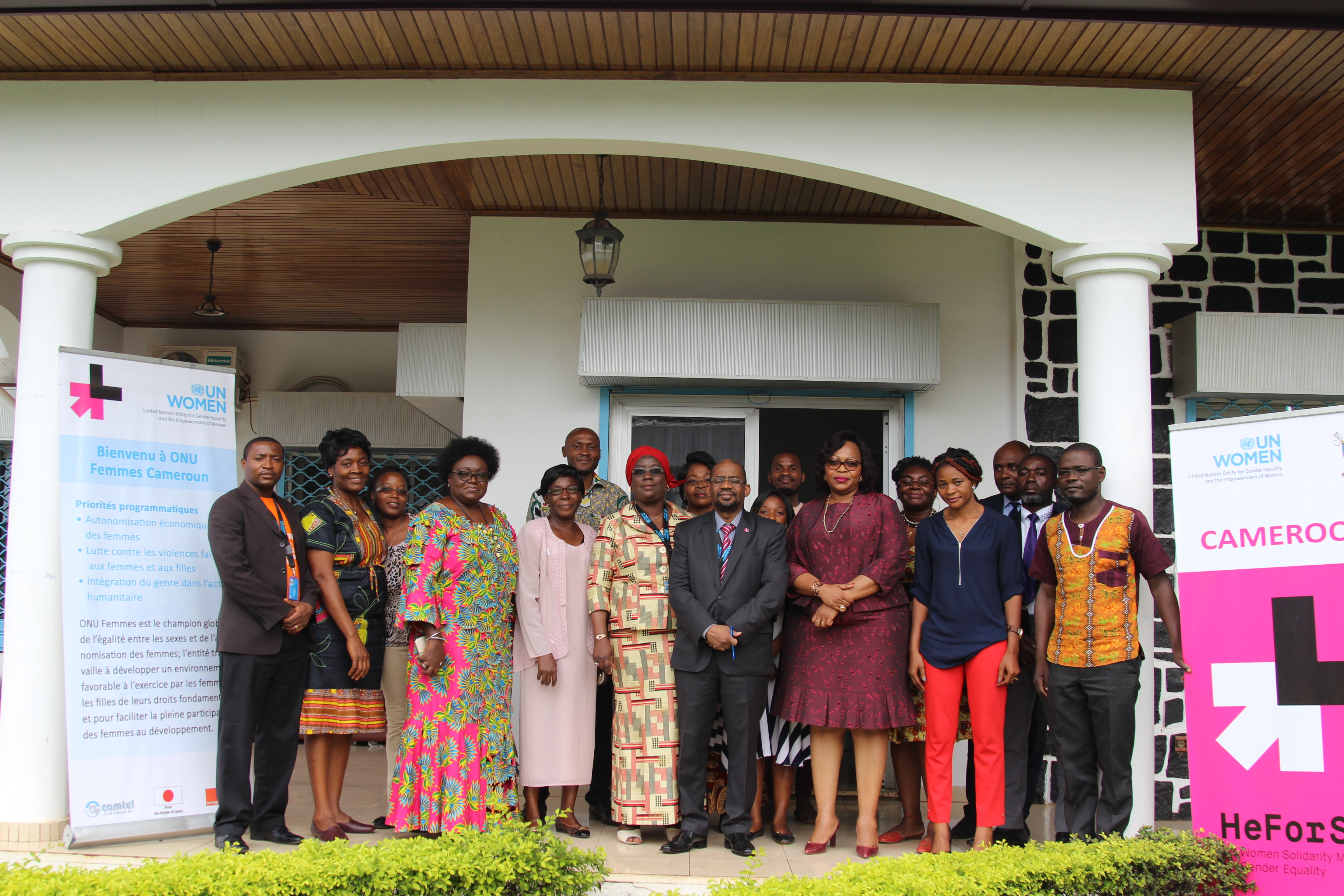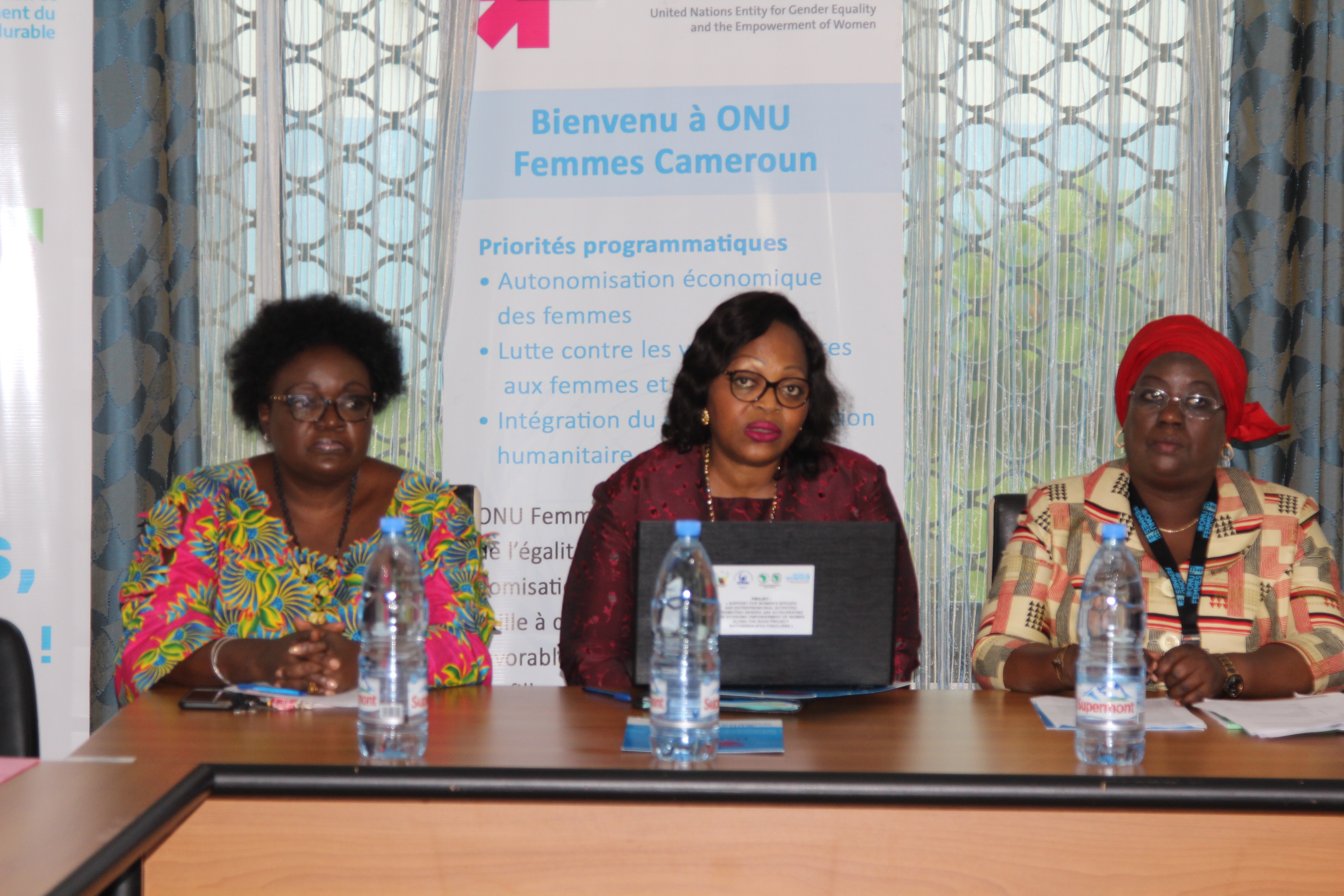UN Women advocating for the integration of menstrual hygiene management needs of women and gender sensitive policy reforms
Date:

Senior level government officials and leaders of civil society organizations have been sensitized on the integration of menstrual hygiene management needs of women and gender sensitive policy reforms during a workshop organized by UN Women in Yaoundé on Wednesday, April 25, 2018.
Organized within the joint program "Gender, Hygiene and Sanitation" between UN women and Water Supply and Sanitation Collaborative Council (WSSCC), this workshop was instrumental in raising awareness and build capacity of senior government officials in different ministerial departments on the integration of Menstrual Hygiene management in the ongoing policy reforms.
While opening the workshop the representative of the Minister of Women Empowerment and the Family (MINPROFF) Mme Ongola Martine, Director of Economic Empowerment of Women, noted that women have specific physiological needs and hygiene problems due to menstruation. She regretted that these needs are not taking into consideration in water and sanitation policies and projects evident in the absence of a safe place to wash or clean in complete privacy in times of menstruation and absence of facilities to dispose of the used pads in an appropriate and ecological safe manner.
“There is a complicit silence around menstruation, due to cultural taboos and myths that weigh on women in African society. Menstruation thus imposes negative consequences such as school absenteeism of young girls, performance of women in the work place and negative health consequences. The present meeting offers a forum to edify government officials and contribute in the elaboration of policies that integrate menstrual hygiene management needs of women and eliminate all forms of discrimination against women and girls due to menstruation” Mme Ongola explained to participants.

Though major strides have been attained in identifying best practices, knowledge gaps and capacity building of policy makers, integrating these concerns in laws and policies remains a major challenge. At the end of the working session, participants lauded this initiative by UN Women and solicited for continuous capacity development support to enable policy maker better integrate menstrual hygiene management and other specific needs of women in water and sanitation policies and projects.